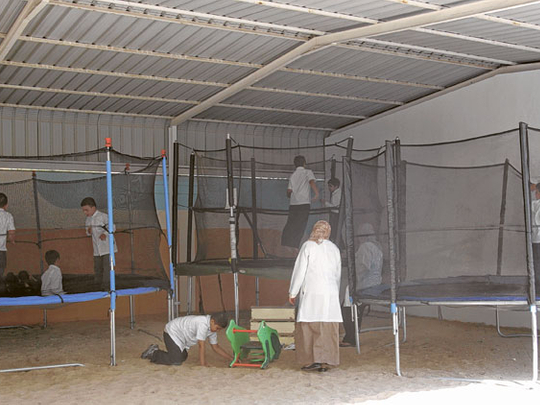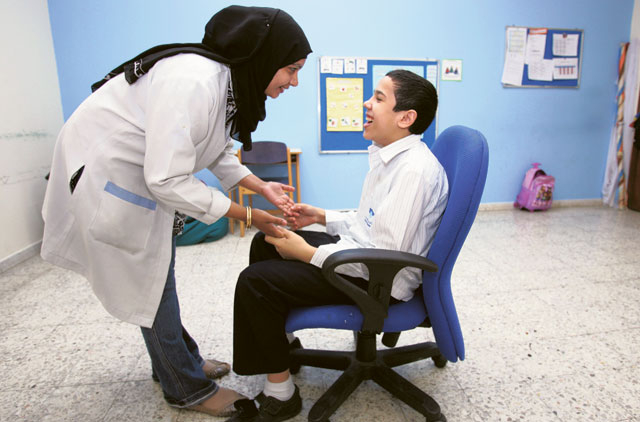
Dubai: Khadeeja Lacdan has been waiting for two years to get a place for her son Qusay and daughter Salma in the Dubai Autism Centre.
"Qusay [who is 17] just sits in the corner of the house. It is heart-breaking," she says.
Her children could only be accommodated in the afternoon classes, but the tuition fee is beyond her reach.
"It costs between Dh500 and Dh1,000 per hour. We get a pension of Dh4,000," says the expatriate who is married to an Emirati.
There is a huge waiting list of children trying to get a place in the Dubai Autism Centre, but the institution can only accommodate 48.
"I can't cheat the parents," says Mohammad Al Emmadi, director-general of the centre. "According to international norms there should be four kids to a class with two special educators."
The situation is getting bleaker. "Out of every 110 newborns, one will be affected by autism," Al Emmadi says. "We need a bigger centre, we need more staff."
He believes that Dubai will need more such centres to provide care to at least 300 more autistic children.
"Bear in mind that some children who could not be with us have gone to special needs schools. That is not the solution."
When autistic children are placed in special needs classes, they tend to copy other children, he adds.
"They should be placed in a class with children with the same IQ level."
The centre, currently located in Satwa, will eventually move to new premises in Al Garhoud but funds are hard to come by to build the new centre.
"The government has done its share [by providing the land]. It is now the time for corporates to show their social responsibility [for the good health of the community]," Al Emmadi says.
He is so desperate that he is willing to take in kind instead of cash. "If you have a factory, I am willing to take doors, windows, lights, finishing material."
When and if the new centre is built, it will accommodate 200 autistic children.
Growing awareness
Before the centre was established in 2001 by Royal Decree, not many knew what autism meant, Al Emmadi recalls. With special awareness campaigns every year since, people now have a better understanding of the disorder, he says.
"Science has no answer [as to] why some children are born autistic," he says, suggesting that one reason the number of cases has been rising could be because of greater awareness, assessment and diagnosis of the disorder.
"These are perfectly normal children. They are beautiful children. There are no [physical] deformities," says Al Emmadi, giving an insight into the disorder.
"An autistic child has three main characteristics: There is no social interaction with other children, no speech, and their behaviour is totally different from other children."
Before the centre was established, teachers had no way of telling for sure whether a child was autistic.
"There were no tools to diagnose [such a child]. Doctors also had no clue," he says, recalling how the centre brought in professors from the United Kingdom and the United States and held training courses for doctors. Teachers in KG 1 and KG 2 were briefed on how they could help children with early intervention.
The centre also helps parents with an autistic child cope with the stress.
All about autism
- It is a development disability.
- It is a life-long disorder.
- There is no medical cure for the disorder.
- Early intervention can limit the disorder.
The signs of autism are:
- A lack of social interaction
- Repetitive movements
- Aloofness
To volunteer or donate call the centre at 04 3986862.













